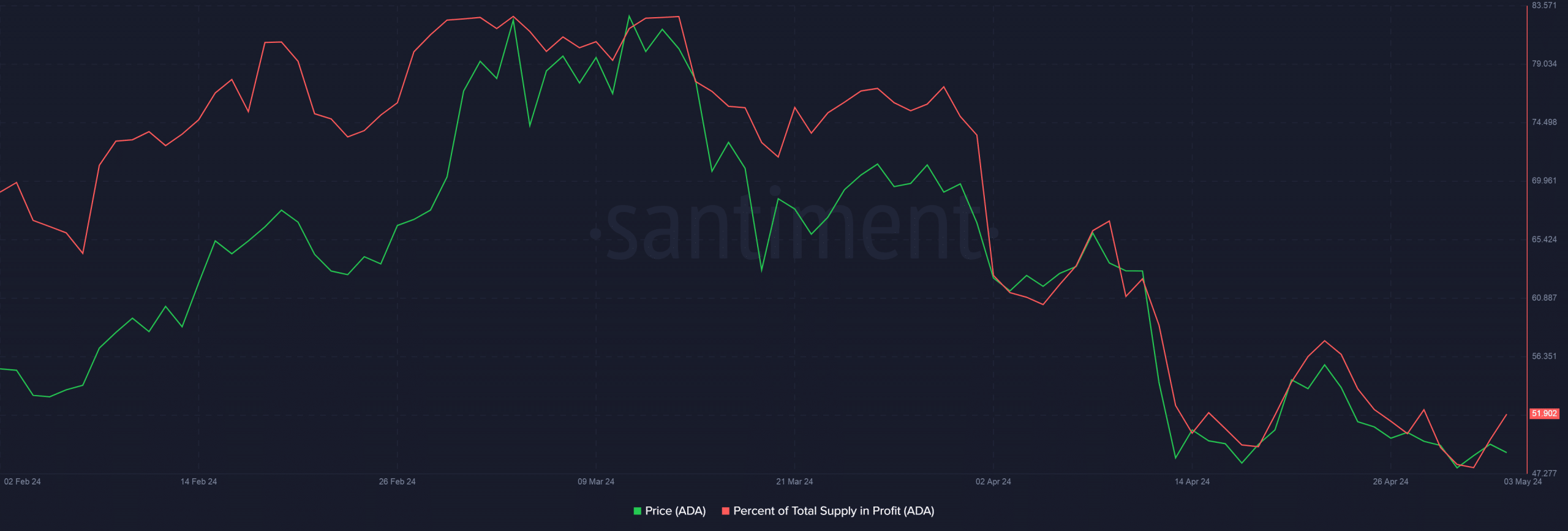Cardano
Cardano’s latest buy signal – Why it could mean a relief rally for ADA’s price
ADA had a rough April, but sentiment might change for the better in May.

- ADA could potentially see a relief rally over the next 1-4 days
- ADA whales can be seen buying the dip en masse
Cardano [ADA], at the time of writing, showed signs of recovery following a 2% hike over a 24-hour trading period, according to CoinMarketCap. This, after the crypto bled heavily in April, recording losses of more than 23% on the charts.
According to AMBCrypto’s analysis of Santiment’s data, the aforementioned market slump narrowed the percentage of ADA’s total supply in profit from 73% towards the beginning of the month to 51% by the time it ended.
Rebound incoming?
However, the corrective phase might end soon, going by the predictions of popular on-chain analyst Ali Martinez. On ADA’s daily chart, Martinez spotted a buy signal on the TD Sequential indicator, suggesting a potential relief rally for the next 1-4 days.
To make better sense of the forecast, AMBCrypto examined other key technical indicators of ADA.
The Relative Strength Index (RSI) rose steadily in the last 2-3 days, a sign that selling pressure has been easing. That being said, the broader sentiment was still bearish and the RSI needed to rise above 40 to justify the prospect of a sustained rally. A move above neutral-50 would strengthen bullish sentiments.
The buying pressure was also apparent in the rise of On Balance Volume since the beginning of May. At press time, it mirrored ADA’s price action on the charts, raising hopes of a sustained rally.
Read ADA’s Price Prediction 2024-25
Assessing whales’ response
Cardano’s downturn in price caught the attention of whale investors. On 30 April, transactions worth more than $100k spiked to their highest levels since November 2023.
On analysis of different whale cohorts, intriguing observations came to light. Smaller whales, with ADA holdings ranging from 1,000 to 1 million, decreased in number, suggesting that they have been selling off.
Larger whales, on the other hand, were accumulating, as addresses holding between 1 million to 100 million coins increased in number. Hence, it was evident that significant capital was flowing from smaller whales to bigger whales.


